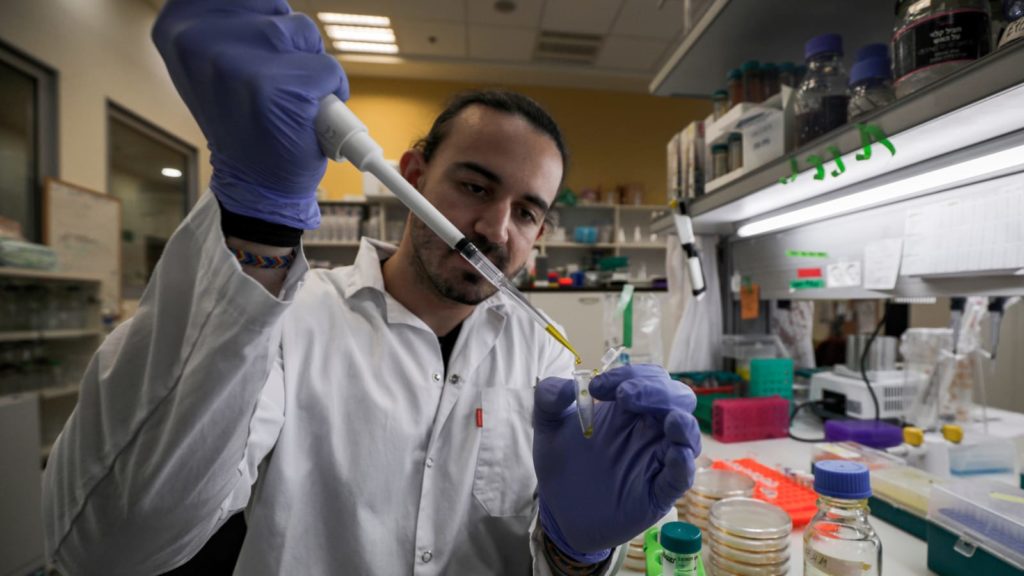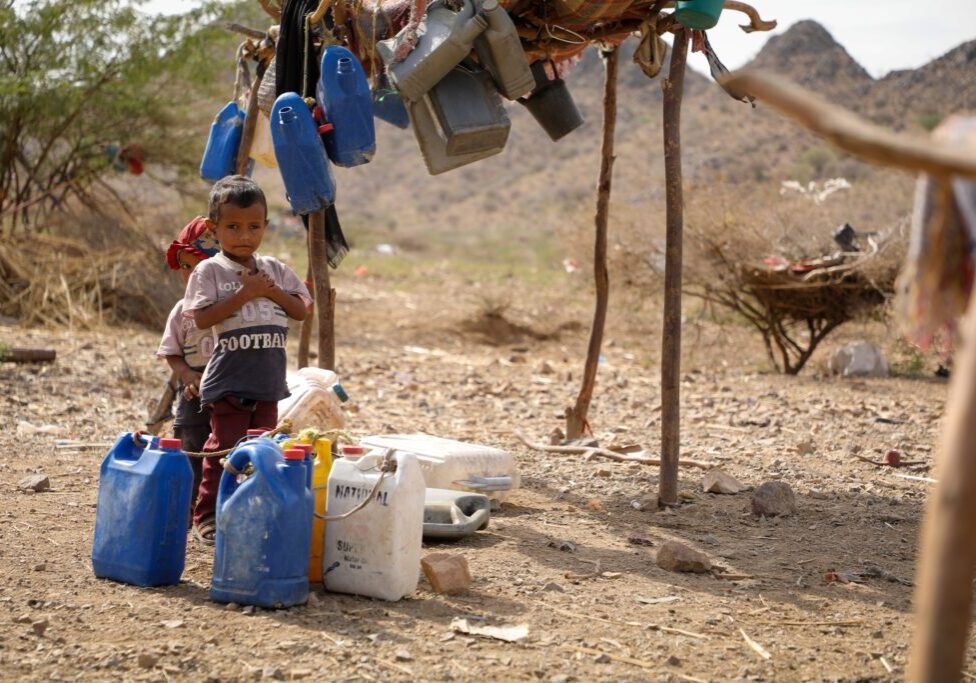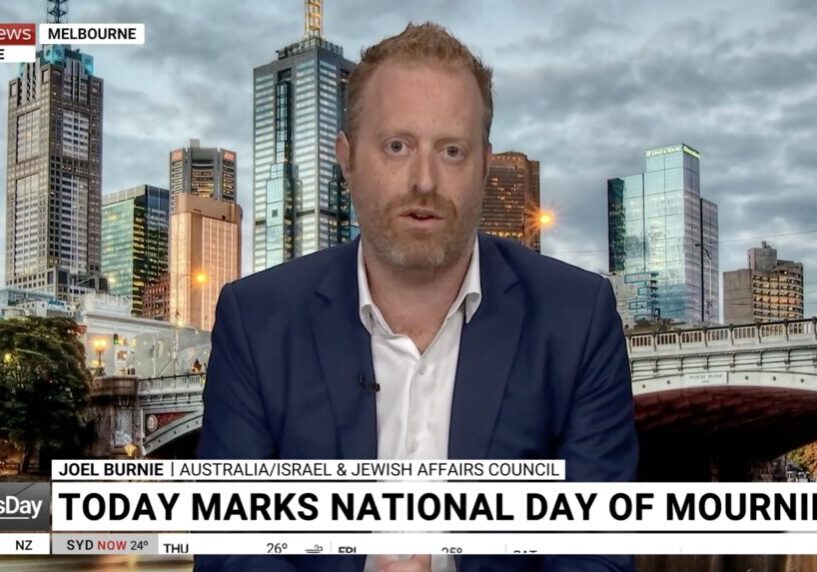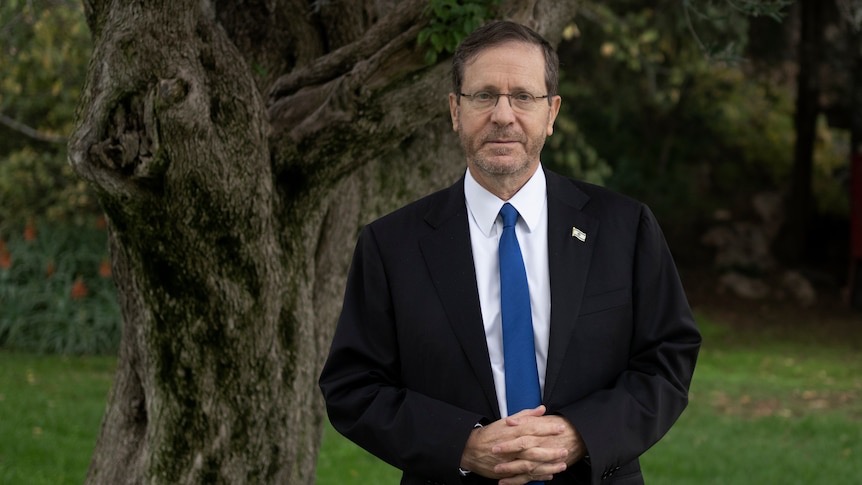FRESH AIR
Start-up nation high-tech versus the coronavirus
April 2, 2020 | Ahron Shapiro, Naomi Levin

Israel, as a global centre of research and development, is leading efforts to use technology to mitigate the coronavirus crisis on three fronts: developing a vaccine, improving testing for the virus, and innovating technological developments to improve patient care.
There have been seemingly daily updates about Israeli breakthroughs in this area. This article will try to provide a helpful overview of many of those breakthroughs and how quickly they are expected to be available for use.
Vaccines and other Treatments
Early reports that Israel was ready to export a coronavirus vaccine to the world were premature, but there are at least two important Israeli institutions working towards development of a vaccine.
The first is Israel’s state-run Institute for Biological Research (IIBR), which has been tasked with the job of creating a vaccine by Prime Minister Benjamin Netanyahu. Fifty top scientists at the Institute are working on the vaccine, in three separate teams, alongside a global biotech company with complementary expertise. On March 31, sources told Reuters that the IIBR had begun testing a COVID-19 vaccine prototype on rodents.
Other researchers at IIBR are also involved in plasma collection from people who have recovered from infection with the novel coronavirus, hoping that this might assist in the research.
In addition, Migal Galilee Research Institute, located in Kiryat Shmona in Israel’s far-north, has spent four years working on a vaccine for a coronavirus disease in poultry that has many similarities to the current novel coronavirus which is causing the current pandemic among humans. The Institute announced in late February, that this vaccine would be adapted to deal with COVID-19.
David Zigdon, the CEO of Migal Galilee Research Institute, said his lab was working hard to accelerate the vaccine’s development.
“Our goal is to produce the vaccine during the next 8-10 weeks, and to achieve safety approval in 90 days. This will be an oral vaccine, making it particularly accessible to the general public,” Zigdon said in a press release.
Meanwhile, scientists at Israel’s Weitzmann Institute of Science, together with Diamond Light Source laboratory in Oxfordshire, are “pioneering a revolutionary method of scientific research that could see a candidate for an anti-coronavirus drug emerge ‘within weeks’” according to the UK’s Jewish Chronicle.
According to Dr. Nir London, who heads the team at Weizmann, the technique involves using the “crowd-sourcing of global intelligence” to quickly generate an “unprecedented amount of preliminary data” and then using tests conducted on all proposed molecules in parallel, rather than linearly, enabling scientists to follow up on “500 to a 1,000 compounds” in the same period it would normally take to test a “few tens of compounds.”
Testing
Testing for coronavirus has been a highly fraught aspect of the current outbreak given the slow pace and labour intensiveness of traditional testing methods.
Israeli researchers have committed themselves to improving testing using technology.
There are reports that in the next six weeks, an Israeli company – working under the guidance of Israel’s Defence Ministry – will be ready to test a COVID-19 screening method that uses only a patient’s voice. Through artificial intelligence technology, the test would observe the patient’s breathing and speech patterns in order to detect the illness. It would be particularly useful because possible cases could be tested from home and could also help monitor the health of patients who have already been diagnosed.
Israel’s Ministry of Defence is also trying to teach dogs from the IDF canine unit to help identify coronavirus patients by smelling saliva samples – a technique that is also being explored in other parts of the world.
Meanwhile, researchers at the Technion-Israel Institute of Technology collaborating with experts at Rambam Medical Centre in Haifa, have come up with a new method of processing test results that could vastly speed up the rate at which tests for the virus can be completed. The technique, known as“pooling”, involves protocols which make it possible for a lab to test samples from up to 64 people at the same time, rather than one at a time, as is the usual practice.
Israel has also recruited more than 600 doctoral students from across the country’s top universities and medical centres to help with testing.
“The level of collaboration between faculty, physicians, health professionals and medical and graduate students at the universities, hospitals, health maintenance organisations, Magen David Adom, and Ministry of Health, is unprecedented in Israel,” said Professor Karen Avraham, Vice Dean of Tel Aviv University’s Sackler Faculty of Medicine. “This will set the stage for years to come for how much we can accomplish when working together so selflessly.”
Defence industries pivot to the war against the coronavirus
Israel’s defence industries have shifted into addressing medical needs in the country. According to the Jerusalem Post, the Defense Ministry, in collaboration with medical company Inovytec and Israel Aerospace Industries (IAI), have completed a production line for Ventway Sparrow ventilators, established on the grounds of a classified IAI missile production site. Ventilators, ready for deployment to hospitals, have already begun rolling off the line.
Meanwhile, the IDF has tasked its famous Unit 81, the military intelligence technology unit, with working to find a way to easily convert simple and inexpensive breath regulating devices known as CPAP machines into ventilators suitable for use in intensive care units. The unit will also produce 1,000 face masks for healthcare providers a day, as well as outfit 50 vans with internal separators to protect drivers from infected patients, and produce information management software for laboratories testing for coronavirus.
Additionally, Unit 108 of the Israeli Air Force has teamed up with Microsoft Israel Research and Development, Ichilov Medical Center, Magen David Adom (MDA) and others to develop a simple respirator that could be mass-produced in labs at low cost. It is being developed as “open source” so that countries around the world could ramp up manufacturing locally, affordably and in a short period of time.
The IDF has also retooled assembly lines previously used to build seats for tanks in order to produce protective goggles for health care workers.
Harnessing the top minds at Israeli universities
All of Israel’s universities have initiated multiple research projects designed to quickly help address the coronavirus crisis:
- The Technion: Besides the previously mentioned testing breakthrough, Haifa’s renowned Technion has 20 different laboratories at the university working on COVID-19 related projects in the spheres of diagnostics, vaccine development, therapeutics and aids for medical teams. TheTechnion academics on the job include Avi Schroeder, who is developing a targeted drug for treating acute respiratory distress syndrome (ARDS), based on existing drug delivery methods, while at the same time, developing a vaccine for coronavirus based on a vaccine he has previously developed for shrimps.
- Ben-Gurion University of the Negev: The Beersheva-based BGU has launched a “Coronavirus Task Force”, according to the Jewish News Service (JNS), “In a meeting attended by 50 scientists from diverse departments within the university, ideas were presented and the task force broke into several groups working on the most promising projects and collaborations, including self-sterilizing facemasks, medical emergency drones, a coronavirus test that could take just five minutes using chip technology, and a telemedicine and remote triage system.”
- Hebrew University of Jerusalem: A March 31 report in theTimes of Israel interviews HU Professor Shy Arkin, who is using his lab to test chemicals to be used to attack the virus. “What we’re trying to do — and again, I would hope and anticipate that others are doing — is trying to repurpose drugs” and find drugs already on the market that may be effective in reducing the most dangerous effects of the virus, Arkin told David Horovitz.
- Tel Aviv University has opened a dedicated coronavirus research lab, which will also be able to perform 1,000 tests for coronavirus a day, adding to the country’s ability to slow the spread of the virus.
- Bar Ilan University is experimenting with autonomous, driverless buses which could be used to transport coronavirus patients without creating unnecessary risks, and remote-sensing technology which could assist in early detection of coronavirus.
Other innovations
The Israeli company Elbit systems has developed an automated radar-based system to measure a patient’s heartbeat, respiration rate and body temperature from a distance, without any need for physical contact by a medical worker. It is currently undergoing medical trials at Rabin Medical Center.
Israeli company Kryon Systems has developed an automation system to help Israel’s health insurance companies quickly process the mountains of data coming in from the country’s growing number of coronavirus patients – as well as those who have tested negative. Kryon is now offering this automation technology to any other health insurance providers globally free of charge, in order to help in the current pandemic.
The Israeli Defence Ministry has also developed a new software called “coronameter” which analyses data gathered from the mobile phones of Israelis to help locate likely carriers of the coronavirus in order to test them. Its use is now awaiting cabinet approval.
Other Israeli researchers are working on projects as diverse as CT scanning technology that can test for coronavirus using artificial intelligence, portable blood-testing devices for coronavirus patients who do not require hospitalisation and a sensor that allows contactless monitoring of a patient’s condition.
Once again, Israel has proven itself to be at the cutting edge in helping solve this dangerous pandemic. Time is of the essence, but Israel appears to not be wasting any of it.
Tags: Israel, coronavirus























